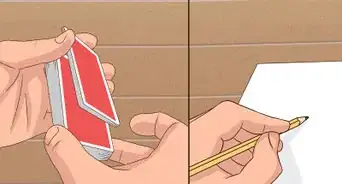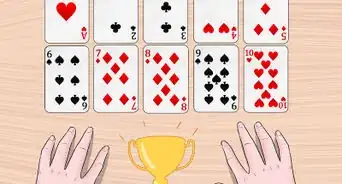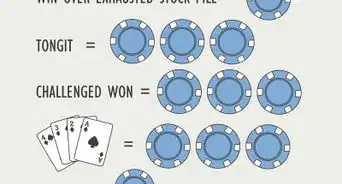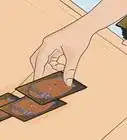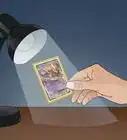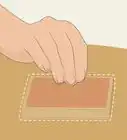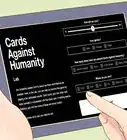This article was co-authored by wikiHow Staff. Our trained team of editors and researchers validate articles for accuracy and comprehensiveness. wikiHow's Content Management Team carefully monitors the work from our editorial staff to ensure that each article is backed by trusted research and meets our high quality standards.
There are 8 references cited in this article, which can be found at the bottom of the page.
This article has been viewed 215,948 times.
Learn more...
Being a pro at Magic: The Gathering isn't simply about enjoying a card game with your friends. Like most professional sports, it involves practice, dedicated study, and participation in what many professionals describe as a "grueling" tournament schedule.[1] However, if you feel like the professional circuit of the Magic playing card game is the place for you, by improving through playing, research, and mental discipline, you could rise through the ranks of players and make a name for yourself in the Pro Tour Hall of Fame.
Steps
Improving through Playing
-
1Engage in regular play. Playing frequently against other players will not only expose you to different play-styles, it will also familiarize you with the thousands of unique cards that have been printed and could potentially be used against you.[2] Regular play will teach you how to best respond to in-game developments with your tournament deck(s) and common scenarios that occur in the various styles of tournament play.
- When practicing, focus on the quality of your play over mere quantity. If you are distracted, it's not likely you'll play your best game or take away as much as you would if you were rested, focused, and in a good mental state.
- Make mental notes of your game as you play. Turning points are especially important, as these will help you evaluate things like the timing of your plays, the best instances to use certain strategies, and more.
- Online play has created an invaluable resource to serious Magic players. Even if you live in an area where local, regional, national, or international tournaments aren't accessible, with an Internet connection you can easily practice against other players.
- Speaking of local, regional, national, and international tournaments, these are vital events where you can test your skill as a planeswalker. You'll also be able to watch games between other pros during your free moments, which will give you a chance to scope out their cards and strategies.[3]
-
2Make every play to your own advantage. Each of your tournament decks should have a goal that actively works against your opponent. Every play you make should be a step towards achieving that goal. Even if you feel out of your depth or hopelessly at a disadvantage, a lucky draw could keep you in the game or poorly timed execution by your opponent could return the advantage to you.
- The goal of your deck shouldn't be too narrow or broad. For example, simply removing an opponent's creature from play could blind you to the larger strategic goals of your opponent, while "playing to win" doesn't give you a firm plan with which you can undo your enemy.
- Having a goal for you deck and knowing it well will also make your deck more versatile. There may be slight modifications you can make to your normal play-style that throws a wrench into the machinations of the opposition. Try to keep an open mind to every way possible you might achieve the goal of your deck.[4]
Advertisement -
3Target technical errors. In the heat of the moment, even veteran players can make poor judgement calls. A minor oversight can lose you in-game tempo or allow your adversary the wiggle room he needs to execute his own strategy. Mistakes can lead you to being overly hard on yourself, but each of these is an opportunity for you to learn more.
- Take special note of instances where you notice you could have done something better. Analyze these to learn the signs and indicators that might tip you off next time you are in a similar situation. Predictive play can undo an opponent before he even gets a chance to make his move.
- Technical errors will also help you learn the most optimal order in which you should execute your strategy. Different situations may require you to alter your order of play. By recognizing enemy moves before they happen and adjusting your own strategy to compensate, you'll stand the best chance of winning possible.[5]
-
4Identify areas of weakness in your deck. Consistent losses in the same fashion might indicate a flaw in the build of your deck. An improper distribution of card types could make your chances of drawing the cards you need for victory unlikely. You might also notice that you're always regretting a certain card in your deck; these cards can often be exchanged for ones that are more helpful.
- Some of your tournament decks might simply be ill-equipped to handle certain strategies. If you find your deck has an Achilles heel, consider ways you might protect yourself from this disadvantage. If you find this is impossible, you should evaluate whether or not that particular deck is worth taking to tournament.
- Your in-game experiences can reveal unexpected flaws in your deck. Some cards and strategies work well on paper, but that doesn't always mean these work the best in real life.
Researching to Improve Your Play
-
1Study new strategies and play-styles. There are plenty of online resources, like Channel Fireball, that analyze strategies, probabilities, techniques, and more. You can also learn variations of your own strategy and the strategies of others by watching how players execute these at tournaments.
- You should also be aware of changes in rules and requirements. You may have to rethink your strategy if a previously disallowed card or card type is permitted in the format of tournament play you specialize, like constructed or limited matches.[6]
- Weigh your deck strategy against other dominant strategies that pros advocate. If you find your deck strategy can't hold its own against those of advanced players, you may need to make adjustments or even start from scratch.
- After spending time, effort, and money building your deck to achieve a certain goal or enact a certain strategy, it can be difficult admitting it isn't good enough to go toe-to-toe with other pros. The hallmark of a true pro is adaptability; never be too proud to optimize your play-style.[7]
-
2Cultivate humility actively. Even if you diligently analyze every game you play and note technical errors and deck weaknesses, if you are pretentious and look down on other players you may overlook game changing details. Even lower tier players may have strategies you need to account for, although these may be inexpertly executed.
- Many serious player of Magic, sharing the same passion for the game you do, can become valuable allies and advisers. Never hesitate to ask questions, and always demonstrate good sportsmanship.[8] [9]
-
3Architect your deck to compensate for deficiencies. Now that you've done your research and gauged your strategy against those of other top-tier players, you'll need to hunt for the right cards to neutralize the strategies that might undo your own. This can be an expensive and time intensive challenge. First:
- Use online card catalogs to find your ideal deck. Some of these cards may be ultra-rare or outside of your price range. However, there might be ways you can accomplish the same effect as these "super-cards" with combinations of more accessible cards. Rank these from most to least important. Then...
- Begin gathering the components of your ideal deck. You may find you need to start with the cheapest, most accessible cards. You might then use these to win money at regional tournaments and reinvest the prize money in the more expensive, less accessible cards. On the other hand, you might find you need to save up and purchase a super-card that's a lynch pin of your strategy. In either case, don't forget to...
- Play-test changes to your deck. This can be a painful experience. After going to the effort of attaining a super-card, finding out in a play-test that it simply does not work can be heartbreaking. However, keep in mind the card will still have value to other players. Even if this card doesn't work out, you can sell it or trade it to help you get the cards you need.[10]
-
4Review the criteria to become a pro-player. There are many routes you can take to reach the pro circuit and the Pro Tour Hall of Fame, and which of these is right for you will depend on your individual situation. You may be limited by finances, travel restrictions, or the need for a chaperon in the event you are a minor. However, the three main ways you can qualify for pro-play include:
- Earning 33 match points, which is equal to winning 11 of 16 rounds, in previous year's Pro Tour.
- Qualifying for the pro-tour through official qualifier tournaments (PTQ). This may also require placing in the tournament or making the point requirement for a Regional Pro Tour Qualifiers (RPTQ).
- Winning enough points or entering the single elimination stage in an official Grand Prix. In the event you are playing in a Grand Prix with less than 1200 players, you may be required to place in the top four.[11] [12]
- NOTE: the qualifying rules can change considerably from year to year. Be sure to check the official Magic: The Gathering qualifying conditions on the Wizards of the Coast homepage.
Honing Your Mental State
-
1Accept bad luck without letting it cloud your judgement. Even the best build deck can be undone by a string of bad draws. Luck of the draw is a definite contributing factor in any of your games, and letting bad luck sour your mood can result in poor play in the instances you do have control.
- The same is true for good luck. If you are having a phenomenal string of wins, any pro will tell you -- you're having a string of good luck. Which isn't to say you haven't worked hard to build your deck and plan your strategy, but overconfidence can lead to serious blunders.
- If you find that you get overly emotional during games, or if you find that high tension games get the better of you, you might try meditation or other self-calming techniques. A surge of adrenaline can lead to a hasty mistake; learn to control adrenaline.[13]
-
2Prevent burnout with planned breaks. Although most pros relate the importance of "living, breathing, and eating" Magic to quickly improve your game, playing too much without rest can ruin your drive. Many successful competitive players relate how they organize their tournament and practice schedules to make time for other hobbies, family, and romance, and you should too.[14] Your hard work will be even more meaningful when it pays off if you have someone to share it with!
- Before plunging headlong into the pro-circuit, you may want to use a trial run to see how you hold up. You may find the travel and practice schedule too intense, in which case you might decide not to invest as much time and money into Magic, instead keeping it as a hobby.
- The drive to become the very best is an important factor for any top-tier player in any professional sport. However, if this gets out of hand, it can have a serious negative impact on your life. Be sure you are taking time to relax and unwind in whatever way you find most valuable.[15]
-
3Understand the ebb and flow of interest. This does not mean that you should give up your practice schedule when the going gets tough or that you'll eventually get bored with Magic. This does mean that there will be times, as with any sport, when you feel you are on a plateau or that you are stuck in a boring cycle. Many professional athletes experience this; the difference between a pro and a dabbler is that a pro never gives up.[16]
Community Q&A
-
QuestionWhat do I do if my friend keeps beating me?
 Annelise Albert-HallCommunity AnswerLet your defeats turn you into a better player. First, try to figure out why you are losing. Maybe your deck(s) have some mana issues, such as too few lands, too many lands, or the mana curve of your deck isn't balanced. Maybe you need to work on your timing, such as when you play instants or creatures. Once you figure out why you keep losing, you can adjust your decks accordingly.
Annelise Albert-HallCommunity AnswerLet your defeats turn you into a better player. First, try to figure out why you are losing. Maybe your deck(s) have some mana issues, such as too few lands, too many lands, or the mana curve of your deck isn't balanced. Maybe you need to work on your timing, such as when you play instants or creatures. Once you figure out why you keep losing, you can adjust your decks accordingly. -
QuestionHow much is a fat pack?
 Community Answer$30 - 50, depending on which one you buy, though there are some more expensive ones that can run over $100.
Community Answer$30 - 50, depending on which one you buy, though there are some more expensive ones that can run over $100. -
QuestionCan teenagers actually play MTG competitively, like in tournaments, league, etc.? Or is MTG just for adults?
 Community AnswerCompetitive magic is open to all ages. You may have more time on your hands than adults do, so you could even have an advantage with practice!
Community AnswerCompetitive magic is open to all ages. You may have more time on your hands than adults do, so you could even have an advantage with practice!
Warnings
- Tournament quality decks can be quite expensive, depending on the format of play you take part in. Some decks could run from $100 - $500, and specially formatted decks could exceed well over $1000.[17]⧼thumbs_response⧽
References
- ↑ http://www.avclub.com/article/whats-it-be-top-magic-gathering-player-222997
- ↑ http://mtgsalvation.gamepedia.com/Magic:_The_Gathering_statistics_and_trivia
- ↑ http://www.gatheringmagic.com/10-tips-to-playing-better-competitive-magic/
- ↑ http://www.gatheringmagic.com/10-tips-to-playing-better-competitive-magic/
- ↑ http://www.gatheringmagic.com/10-tips-to-playing-better-competitive-magic/
- ↑ http://www.wizards.com/dci/downloads/MTG_MTR_1Jul09_EN.pdf
- ↑ http://magic.wizards.com/en/articles/archive/reconstructed/top-8-ways-improve-your-deck-building-2014-11-25
- ↑ http://www.gatheringmagic.com/10-tips-to-playing-better-competitive-magic/
- ↑ http://www.avclub.com/article/whats-it-be-top-magic-gathering-player-222997
- ↑ http://www.gatheringmagic.com/10-tips-to-playing-better-competitive-magic/
- ↑ http://magic.wizards.com/en/articles/archive/new-path-pro-tour-2014-07-29
- ↑ http://www.wizards.com/dci/downloads/MTG_MTR_1Jul09_EN.pdf
- ↑ http://magic.wizards.com/en/articles/archive/level-one/becoming-better-player-2015-09-28
- ↑ http://www.avclub.com/article/whats-it-be-top-magic-gathering-player-222997
- ↑ http://www.gatheringmagic.com/10-tips-to-playing-better-competitive-magic/
- ↑ http://magic.wizards.com/en/articles/archive/level-one/becoming-better-player-2015-09-28
- ↑ http://www.mtggoldfish.com/articles/the-most-expensive-standard-since-caw-blade
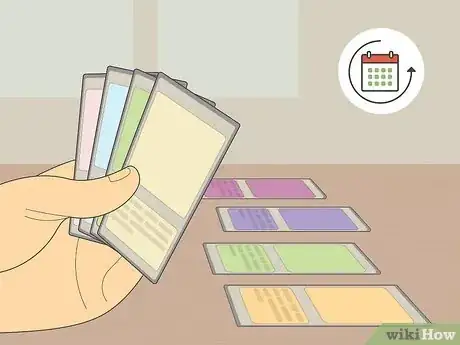
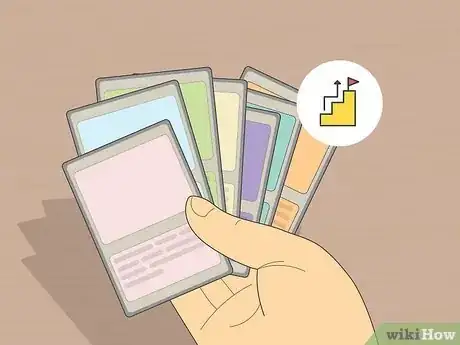
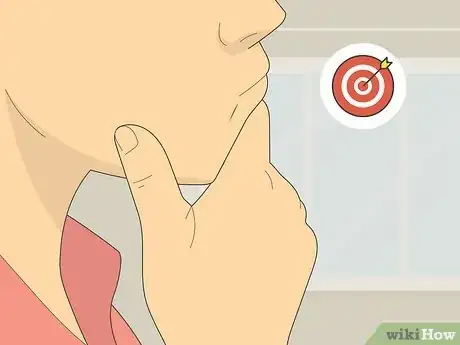
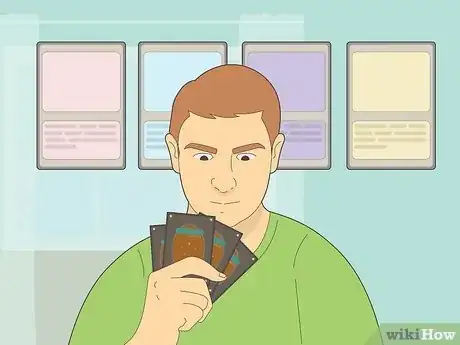
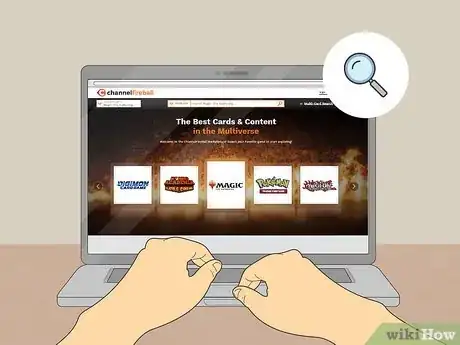
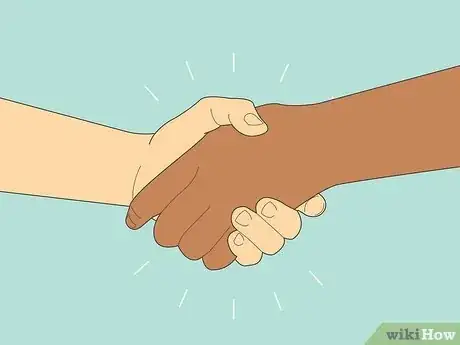
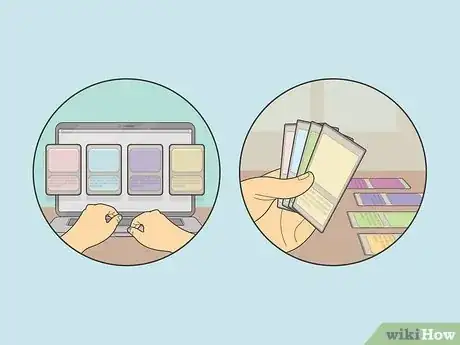
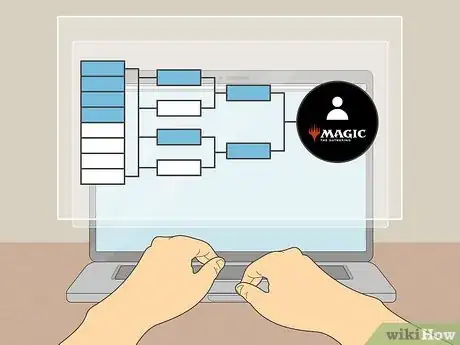
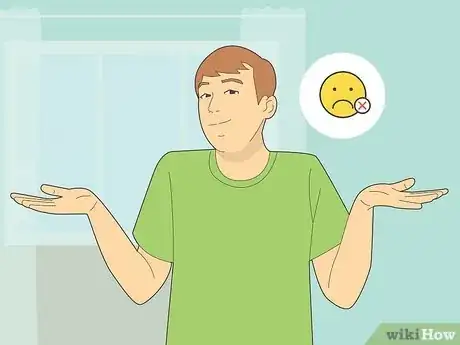

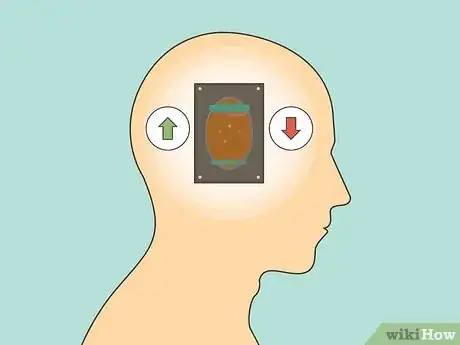
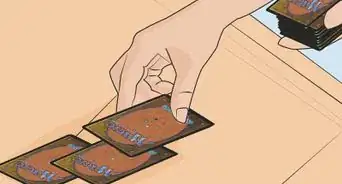
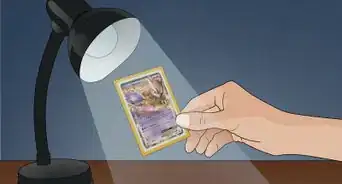
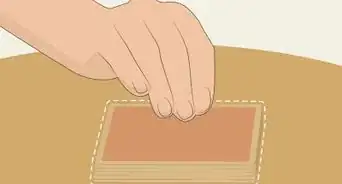
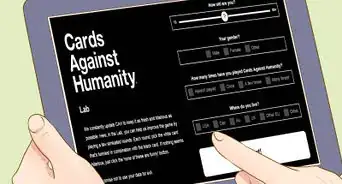
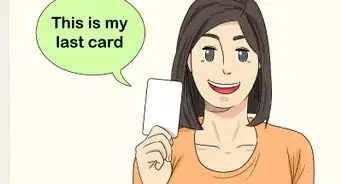
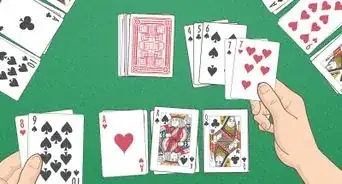
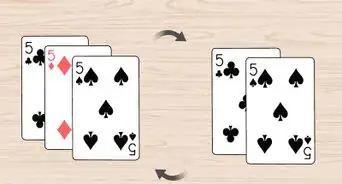
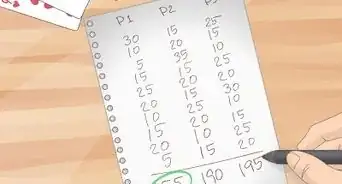


-Step-17.webp)
